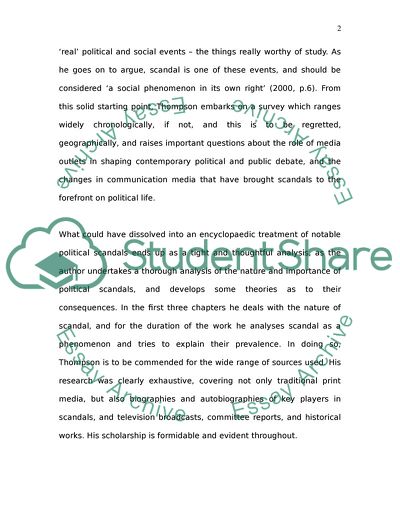Cite this document
(“Political Scandal: Power and Visibility in the Media Age Literature review - 1”, n.d.)
Political Scandal: Power and Visibility in the Media Age Literature review - 1. Retrieved from https://studentshare.org/politics/1748398-political-scandal-power-and-visibility-in-the-media-era
Political Scandal: Power and Visibility in the Media Age Literature review - 1. Retrieved from https://studentshare.org/politics/1748398-political-scandal-power-and-visibility-in-the-media-era
(Political Scandal: Power and Visibility in the Media Age Literature Review - 1)
Political Scandal: Power and Visibility in the Media Age Literature Review - 1. https://studentshare.org/politics/1748398-political-scandal-power-and-visibility-in-the-media-era.
Political Scandal: Power and Visibility in the Media Age Literature Review - 1. https://studentshare.org/politics/1748398-political-scandal-power-and-visibility-in-the-media-era.
“Political Scandal: Power and Visibility in the Media Age Literature Review - 1”, n.d. https://studentshare.org/politics/1748398-political-scandal-power-and-visibility-in-the-media-era.


